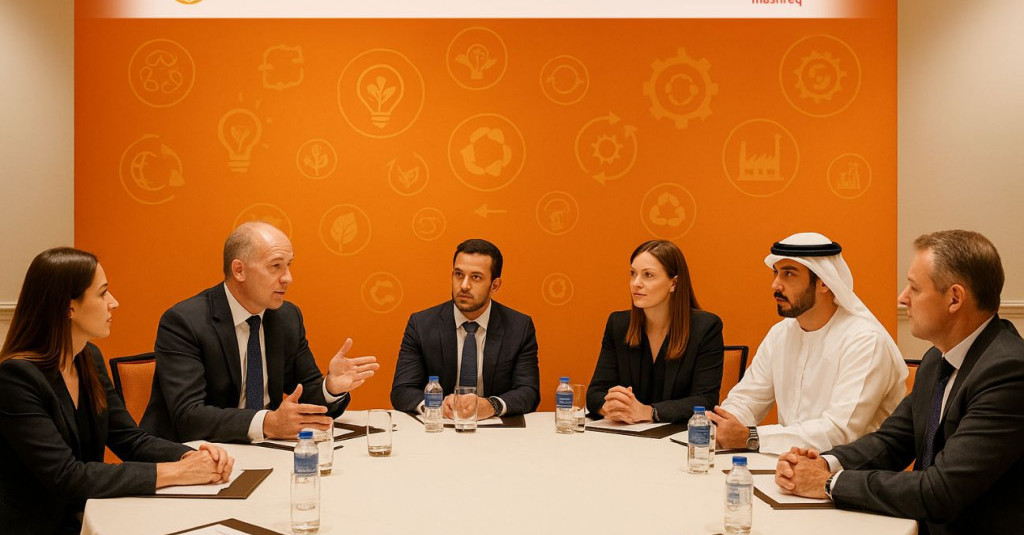News
Ajman University Champions Circular Economy Dialogue at High-Level Mashreq Future Sustainability Forum

Ajman University, represented by the Office of Sustainability, took part in the Mashreq Future Sustainability Forum Roundtable held at Madinat Jumeirah, Dubai. Organized by Gulf Intelligence and hosted by Mashreq Bank, the high-level roundtable brought together sustainability leaders and experts to explore the critical question: “How can sustainability and the circular economy drive greener economies?”
The roundtable, hosted by Joel Van Dusen, Group Head of Corporate and Investment Banking at Mashreq, and Faisal Mohammed Al Shimmari, Executive Vice President and Head of ESG & Corporate Strategy at Mashreq, convened thought leaders from the financial, environmental, and industrial sectors to discuss pathways toward sustainable economic transformation. The forum focused on how renewable energy adoption, circular economy integration, and green investments can collectively accelerate the transition toward low-carbon, resilient economies.
The discussion emphasized the pivotal role of the circular economy in decoupling growth from resource depletion by promoting reduction, reuse, and recycling models. Experts also highlighted how sustainable business practices and cross-sector collaboration can generate green jobs, strengthen global competitiveness, and advance alignment with the UN Sustainable Development Goals (SDGs) and the Paris Agreement.
Distinguished speakers included Dr. Samar Abdo Al Ghalebi, Founder of VestinGrow, who shared insights on green infrastructure investments; Riad Bestani, Founder and CEO of ECOsquare, who discussed industrial solutions to waste management; Ragini Kalapatapu, Head of ESG at Egis, who elaborated on decarbonization strategies; and Hassaan Ghazali, ESG Expert at AHG Global, who addressed the policy dimensions of sustainability and environmental law. The session was moderated by Sean Evers, Managing Partner at Gulf Intelligence.
Throughout the engaging discussion, participants underscored the importance of public awareness, innovation, and partnerships between the private and public sectors to build circular systems that enable long-term prosperity and environmental balance. The forum reinforced the message that sustainability is not merely an environmental obligation but a strategic economic opportunity that paves the way for a greener and more inclusive future.
Ajman University’s participation reflects its ongoing commitment to fostering a sustainable mindset within and beyond academia, aligning with the UAE’s vision to lead in climate action, green finance, and circular economy innovation.